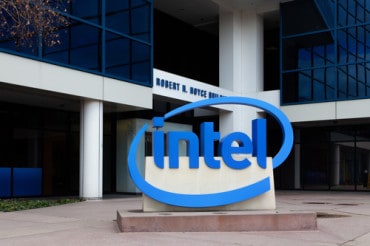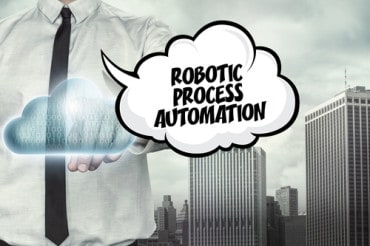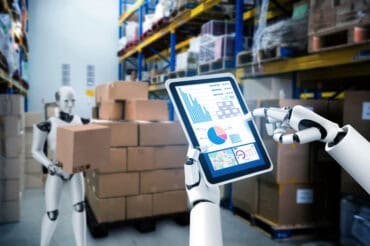
In this week’s real-time analytics news: Deloitte launched AIOPS.D to enable autonomous business processes, CompTIA introed a data analytics certification, and more.
Keeping pace with news and developments in the real-time analytics market can be a daunting task. We want to help by providing a summary of some of the items our staff came across each week. Here are some of the news items from this week:
Deloitte launched AIOPS.D to enable autonomous business processes. The AIOPS.D business offers an AI-fueled, plug-and-play modular microservices platform to help clients autonomously run core business processes across a wide range of functions, including procurement, finance, and supply chain. Autonomous operations harness the power of humans working with machines. The platform leverages Deloitte’s ecosystem collaborators and deep domain and industry experience to help enable organizations to achieve highly intelligent, resilient, and autonomous operations in weeks, not months or years.
Download Now: Building Real-time Location Applications on Massive DatasetsThe Industry IoT Consortium (IIC) announced the Industrial IoT Artificial Intelligence Framework (IIAIF). The framework highlights the value proposition AI can enable in next-generation industrial IoT (IIoT) systems and addresses the emerging requirements and implementation challenges. The IIAIF brings together both the IT and OT perspectives and their convergence by considering the various aspects of next-generation AI-enabled IIoT systems. For instance, the framework addresses the value proposition, implementation challenges, and architectural decisions and provides exemplary usage scenarios.
CompTIA expanded its credentialing program into the data skills arena with the introduction of CompTIA Data+. CompTIA Data+ is a data analytics certification for professionals tasked with developing and promoting data-driven business decision-making. It validates the ability to mine, analyze and interpret data in a clear, consistent way that produces insightful observations about the business.
Solace announced cloud-based developments to help organizations integrate data held in legacy systems into cloud-based applications. Key elements of the announcement include:
- Enhanced integration capabilities that make it easier to extend event meshes to the cloud. Solace developed additional connectors integrated into its event brokers that make it easy to link legacy applications with cloud-native services and serverless functions, starting with connectors for AWS, Azure, and Google Cloud Platform.
- Solace PubSub+ event streaming and management platform is now available within the marketplaces of the leading cloud services. The brokers are available natively within the AWS and Azure marketplaces and will be extended into the Google Cloud Platform and other leading cloud marketplaces throughout 2022.
Alteryx announced the Alteryx Analytics Cloud, its first unified end-to-end analytics automation platform that helps businesses make more informed decisions with their data. The availability of new Alteryx solutions in the cloud means users only need a browser to gain access to insights, with a setup that can be done in minutes instead of days. Alteryx’s low-code/no-code capabilities also make it easier for any user to extract insights that help them tackle their toughest business problems.
Stardog unveiled Stardog Designer, a no-code, visual environment for creating knowledge graphs, which helps data and analytics teams to easily apply knowledge graph technology in their work. Stardog Designer and other new capabilities are a part of the company’s latest release, Stardog 7.9. Together, Stardog Designer and updates in the 7.9 release enables data and analytics teams to:
- Connect and explore data virtually in Databricks or other data lakes or cloud data warehouses with just a few clicks.
- Visually create a semantic data model through a virtual whiteboard-like experience.
- Prepare and map source metadata to semantic models through the same drag and drop interface.
- Easily publish models and mappings for data exploration and analysis.
Imply unveiled the first milestone in Project Shapeshift, the 12-month initiative designed to solve issues developers face when building analytics applications. The announcement includes a cloud database service built from Apache Druid and the private preview of a multi-stage query engine for Druid. Together, these innovations show how Imply delivers the most developer-friendly and capable database for analytics applications.
Dremio announced the general availability of Dremio Cloud, a free data lakehouse platform, and the addition of two new services: Dremio Sonar, a lakehouse engine built for SQL, and Dremio Arctic, a metadata and data management service for Apache Iceberg that provides a unique Git-like experience for the lakehouse. Dremio Sonar is now generally available, and Dremio Arctic is in public preview.
Anomalo introduced the Pulse dashboard that provides a comprehensive view of data quality in an organization and aggregates all the data quality vitals in one place. Specifically, the dashboard provides data owners with the metrics and KPIs related to data quality coverage, data arrival times, data quality trends, and problem areas. Pulse also provides a deep dive into each of these statistics making it clear exactly what next steps should be prioritized to improve data quality in an organization.
Voltron Data, the largest corporate contributor to Apache Arrow, announced its first commercial offering – the Voltron Enterprise Subscription for Arrow – for companies building with Arrow. Benefits of the Voltron Enterprise Subscription for Arrow include on-demand assistance from the team of leading Arrow developers at Voltron Data, simplified issue reporting and faster fixes to drive greater business value, delivery of custom upgrade guidance along with urgent security bulletins, rapid hotfixes when critical vulnerabilities are identified, and direct access to leaders within the Arrow project and services only available to Voltron Data customers.
Real-time analytics news in brief
Zoho announced the latest version of its low-code offering, the Zoho Creator Platform. Addressing the needs of both business users and IT teams, Zoho Creator Platform supports all levels to build, manage, integrate, and analyze for a complete low-code experience. New capabilities and key areas of focus in the new platform include expanding app building to solution building, availability of an ecosystem of solutions, and increased control for it with end-to-end application development life cycle management.
Red Hat announced that Red Hat Training and Certification is expanding its offerings for partners in order to advance their skills journey with open hybrid cloud technologies. Red Hat partners can now access Red Hat Training self-paced online courses at no cost to develop critical skills around Red Hat solutions in key areas such as cloud computing, containers, virtualization, automation, and more.
Micro Focus announced the release of the company’s new Data Protector for Cloud Workloads solution, providing data protection capabilities across a wide range of public cloud providers, virtual environments, and containers. Also offering protection for key Microsoft 365 Services including Exchange Online, SharePoint Online, OneDrive for Business, and Teams, Data Protector for Cloud Workloads joins the Data Protector family of products.
Precisely announced the launch of Property Graph, the newest addition to its Precisely Addresses product family, which makes it more efficient to see the relationships between data related to buildings, parcels, property attributes, addresses, and points of interest. The product equips customers with a comprehensive view of properties, providing maximum context for location-driven decision-making.
Cape Privacy, the platform that enables businesses to run predictive machine learning models on encrypted data, announced the availability of its self-service enterprise solution optimized for the Snowflake data cloud. Businesses can now use Cape Privacy to employ encryption-in-use, securely operationalize their most highly classified data, and run predictive machine learning models on encrypted data stored in private clouds or in a third-party data cloud.
Imagimob announced that its new release of the tinyML platform Imagimob AI supports end-to-end development of deep learning anomaly detection. A big strength of deep learning anomaly detection is that it delivers high performance as well as eliminates the need for feature engineering, thus saving costs and reducing time-to-market.
Ordr announced the availability of Ordr Clinical Defender. Built on Ordr’s foundational asset and risk management features and developed with best practices from the top healthcare delivery organizations (HDOs) in the world, Ordr Clinical Defender enables Healthcare Technology Management (HTM) teams to manage their connected medical devices more efficiently and accurately.
Partnerships, collaborations, and more
Software AG announced an agreement to acquire StreamSets, a leader in data integration for the modern data stack. StreamSets’ enterprise-grade data integration platform enables customers to move data seamlessly and securely to and from any part of their digital backbone, which is built by Software AG’s Digital Business portfolio across hybrid and multi-cloud environments. This combination enables organizations to better unlock and capture value from data as it moves between on-premises applications, data streams, SaaS applications, legacy data stores, and cloud data platforms like Amazon RedShift, Databricks, and Snowflake. The combined hybrid iPaaS platform will deliver consolidated, conformed, continuous data to smart applications and the connected enterprise.
CAST and LeanIX announced a strategic partnership aimed at supporting enterprise customers involved in migrating and modernizing applications to the cloud. The combination of data captured by LeanIX Enterprise Architecture Management (EAM) and source code insights provided by CAST Highlight enables clients to make more informed cloud transformation decisions, develop effective software strategies, and ultimately move their applications to the cloud faster and safer.
Advantech is collaborating with Canonical in the provision of Ubuntu pre-loaded and certified embedded boards and systems for diverse edge computing apps. Through the certification of Advantech products, Canonical guarantees up to 10 years of Linux security and updates capabilities for users in the AI robotics, industrial manufacturing, and mission-critical application sectors.
Groq announced the acquisition of dataflow systems firm Maxeler Technologies. Maxeler complements Groq’s innovation in compute challenges such as increasing speed to innovation from days to minutes for drug discovery with Argonne National Laboratory. Together they will advance the delivery of AI, ML, and HPC solutions for today’s evolving compute landscape.
Rakuten Symphony announced an agreement to acquire Robin.io. The addition of Robin.io’s multi-cloud mobility, hyper-automation, and orchestration capabilities to the Rakuten Symphony portfolio allows the creation of highly efficient, consistent high-performance cloud infrastructure and operations, from edge to central data center.
Microsoft announced the completion of its acquisition of Nuance Communications Inc. Together, Microsoft and Nuance will enable organizations to accelerate their business goals with our security-focused, cloud-based solutions infused with powerful, vertically optimized AI.
Cloudleaf, a real-time supply chain operations platform, today announced a strategic company rebrand to ParkourSC, highlighting the need for innovation, agility, flexibility, and speed to enable timely decisions in today’s global supply chains.
If your company has real-time analytics news, send your announcements to ssalamone@rtinsights.com.
In case you missed it, here are our most recent previous weekly real-time analytics news roundups:





























